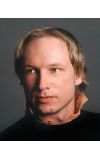
05 Sep 2011 02:37:27
Jo Nesbø, the Norwegian author whose books about the driven, enigmatic detective Harry Hole have made him a bestseller in Britain, said yesterday it was inevitable that crime writing would change in the wake of the Anders Behring Breivik shootings last month.
The author, speaking at the Edinburgh international book festival, said that the massacre "will definitely affect crime writing. I don't think it will be something that crime writers will think about consciously, but we are all changed. It's there in the back our heads, and everything that is in our minds will find its way to paper.
"It will influence the way we think, and write, and communicate." Nesbø said his country's reaction to the Breivik shootings has made him "proud of being a Norwegian".
He said Norway would never and should never forget the events of 22 July, but added: "We have to get back to normal; we have to start laughing again." He also said that the country, which is moving towards local elections, needs to focus on "real political problems".
"Things have to get back to normal. The feeling in the country is: let this be something we don't forget, but let's not change the way we do things."
Nesbø came to prominence in Britain with the publication in 2006 of his Harry Hole novel Redbreast. The Snowman, published in Britain in 2010, and The Leopard, which followed this year, have cemented his reputation as one of the greatest of the wave of Scandinavian writers, alongside Swedish authors such as Henning Mankell and Stieg Larsson, and his fellow Norwegian, Karin Fossum.
Nesbø hinted that Hole – already beloved of British readers – will not last for ever. "I have a storyline for Harry, and when I want to, it stops, and that's the end. He's not going to have eternal life. He is getting closer to the end.
"I'm not going to tell you how many books it is going to take but he is the kind of character that is falling apart bit by bit, and in the end there won't be anything left," he said.
However, he added, he has a myriad of ideas for future series and stories: his problem was "having too many plans" rather than too few.
Nesbø was a footballer for a semi-professional team, but quit due to injury at 19. As more people have read his books, he said: "The myth about me as a footballer has grown: I am now the lost Maradona of Norway."
He became a stockbroker by day, and by night the lead singer of a band, Di Derre. Although they played mainly to "nerds and students with black T-shirts", after a hit second album, "suddenly we were the biggest band in Norway".

